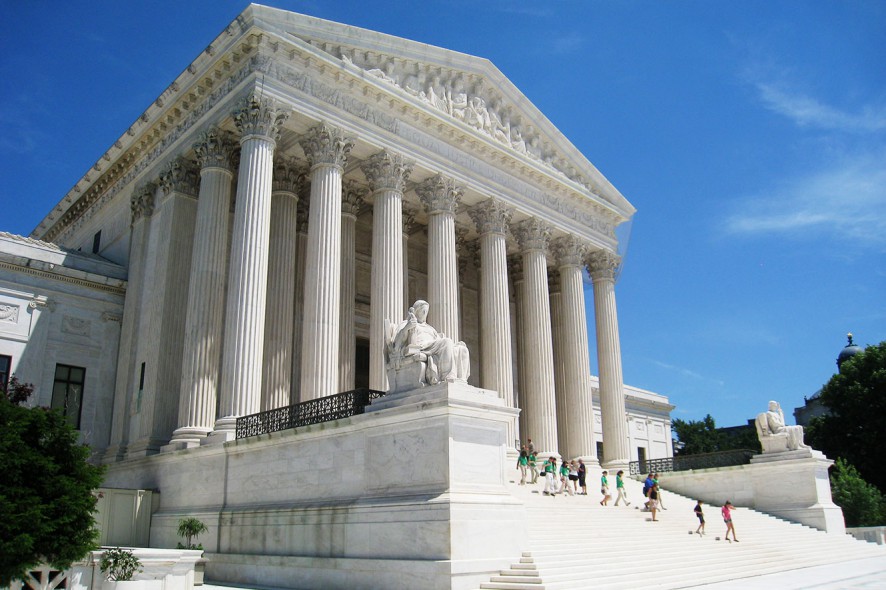Supreme Court of the United States (SCOTUS): A majority opinion delivered by Chief Justice Roberts and joined by Alito J, Gorsuch J. and Kavanaugh J. temporarily reversed a lower court order which had extended the deadline for a political action committee to gather signatures for a ballot initiative electronically.
The respondent is a political action committee which had tried to garner necessary votes for a ballot initiative, but had to halt the campaign for physical signatures in light of the Covid-19 pandemic. Idaho law required “in-person collection of petition signatures,” but this law was not suspended to allow the respondent to collect signatures electronically, which it claimed resulted in a violation of its First Amendment rights guaranteeing the rights of assembly and petition to citizens. The District Court had allowed for an extension of deadlines, enabling the respondent to collect signatures electronically.
The conservative majority did not allow for a relaxation of voting-related restrictions and responsibilities in light of the pandemic, stating that “this is not a case about the right to vote, but about how items are placed on the ballot in the first place.” It found that First Amendment allowed for a scrutiny of the interests of the State whenever a citizen’s ability to place an initiative on the ballot was inhibited and observed that in the present matter, such “reasonable restrictions” are justified in combatting fraud and ensuring that initiatives lacking necessary votes do not clutter the ballot. Moreover, the majority opined that nothing in the Constitution required Idaho, or any other State for that matter, to provide for ballot initiatives. Considering that an extension in the deadline would exacerbate the strain on the State in terms of time and resources and increase the costs it would have to bear in verifying digital signatures, it granted the application for stay on the district court’s orders.
However, Sotomayor J, joined by Ginsburg J, dissented from the grant of stay, holding that a stay would put the respondents in a far more precarious situation than the applicant. The delay cause by the majority’s grant of stay would render the respondent’s First Amendment claims moot before any appellate court could consider its merits, and would make it impossible for them to collect the necessary signatures in time for the November ballot if their case prevails during appeal. Sotomayor J. criticized the majority’s decision for usurping the Court of Appeal’s responsibility to review the District Court’s decision, holding the Court responsible for forgetting that it is “a court of review, not of first view.” [Little v. Reclaim Idaho, 591__US (2020) No.20A18, decided on 30-07-2020]






